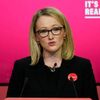Cost of living: Chancellor pledges support, but specifics are yet to come
Chancellor of the Exchequer ToastinRussian promised £28 billion in new spending to address the UK's cost of living crisis in a statement to the House of Commons on Sunday.

Chancellor of the Exchequer ToastinRussian promised £28 billion in new spending to address the UK's cost of living crisis in a statement to the House of Commons on Sunday.
The Treasury has planned to deliver a cost of living package for months as the previous Government introduced an Imprest Supply Bill to authorise additional spending before a full budget, but faced objections from then-opposition parties Labour and Solidarity. Now that Labour is leading a government, they have pressed on with plans to deliver spending to lower the cost of living.
In an effort to deliver a statement quickly, the Chancellor acknowledged that the plan hadn't yet taken its final form. While there were pledges made in regards to spending, a full breakdown was reserved for a forthcoming statutory instrument that brings the spending into effect. The Chancellor also left the door open to the plans changing in the future.
However, I must provide a warning to members that some aspects of the package may change while the SI is being drafted.
– ToastinRussian
What spending has been announced so far?
£7 billion in rebates for energy bills, targeted at energy prices which have soared due to supply-chain issues exacerbated by the Russia-Ukraine War. With about 27.8 million households in the UK, this would amount to an annual reduction in energy prices of about £250 per household. The Government haven't announced specific figures for support for each household, so that figure should be taken as a rough estimate.
£1.5 billion to "support failing energy intensive trade exposed businesses". There's no information on what businesses these would be, but it might refer to businesses involved in the production and distribution of energy. The Government hopes these measures will bring energy bills down beyond a simple rebate.
£7 billion to raise the personal allowance – £140 for each taxpayer, with the exception of seniors and those below the poverty line, who receive £300. Combined with the existing system of Basic Income, someone who earns no money receives an effective income of £11,800.
£2.5 billion to reduce public transport fares by 25%. The Government recently introduced the Railways (Fares Adjustment) Bill to allow the Department for Transport to set fares for rail journeys. At the time, the Government did not indicate how much the fares would be reduced – we now know it to be one quarter.
£2.5 billion for an "essentials fund", providing "essential items, such as food, over the counter medicines, sanitary and period care products among other items". The Queen's Speech also pledged to fund a National Food Service, which has not yet been set up. Some of this funding would presumably be redirected to the National Food Service after it becomes operational, but it's unlikely those figures will be released before a full budget.
£1.5 billion for business capital injections. It's unclear if any specific industries will be prioritised for capital injections.
£400 million in support for Ukraine, with half going to the Ukrainian government and the other half going to support asylees.
£100 million in funding for the disabled.
Other programmes, such as a VAT rebate for commuters and a reduction in vocational training prices, were also announced. However, there are no figures available for those initiatives yet.
What is the reception in Westminster?
While the Government being supportive and the Opposition opposing a Government initiative is nothing new in Westminster, the Chancellor's decision to deliver a statement before laying the final package before the House of Commons suggests he could be willing to take feedback on board.
Chief Secretary to the Treasury and former Chancellor phonexia2 praised the statement – saying that it was more spending than what was proposed under the previous Coalition!-Conservative-Liberal Democrat coalition.
"This is a package worth more than what has been proposed in the House before and will deliver effective relief," she said.
Others were less supportive, however.
Solidarity member Model-Trask criticised plans to send aid to Ukraine in support of what he called a "destructive and futile war".
Speaking to the Independent, Pirate Party UK leader Faelif criticised the Government's decision to release a statement before the spending package was finalised.
"This is nothing but words - we have seen no actual progress from the Government yet on this issue and the fact that the Government has prioritised writing speeches over writing legislation wtih have a tangible effect on the British people's lives is both telling and worrying."
The Imprest Supply Bill is expected to pass the House of Commons in the coming days, allowing a statutory instrument to give effect to the Government's spending plans as early as next week.
Lily Hail is the editor-in-chief of the Independent.

